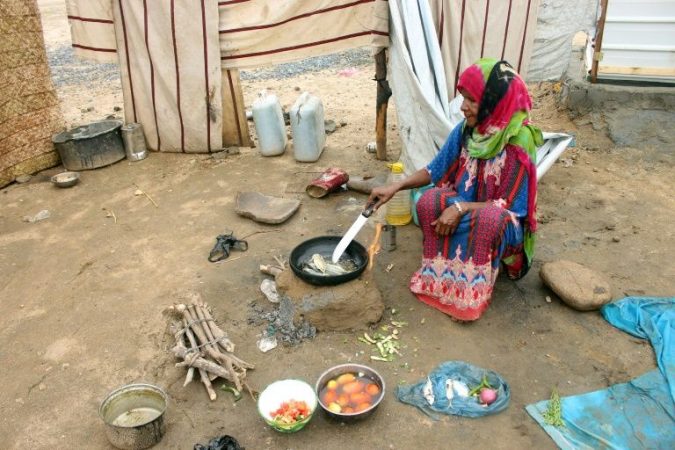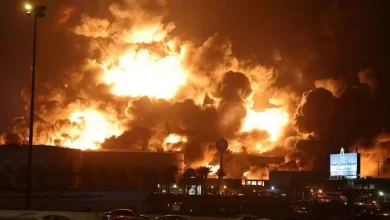
Five years later: Saudi Arabia trapped in the Yemen quagmire
US, WASHINGTON (ORDO NEWS) — Five years after the start of its military intervention in Yemen, Saudi Arabia remains mired in an expensive conflict, with no visible outcome and which has earned it much criticism.
By launching an armed operation financed with billions of dollars in March 2015, Ryad expected a quick victory to drive the Houthi rebels from Sana’a and restore the authority of the Yemeni government.
The first air raids of the Saudi-led coalition were then part of the foreign policy of the new crown prince, the young and ambitious Mohammed bin Salman.
But five years later, Ryad failed to dislodge the rebels - supported by Iran - from the capital or their northern bastions.
The country finds itself trapped in the Yemeni quagmire, especially since the United Arab Emirates, its main ally, decided to reduce their military presence there in July 2019.
Like the Emiratis, the Saudis would like to say: “this war is over for us”, confides to AFP a Western official, who closely follows Ryad’s policy in Yemen.
“But the situation on the ground remains complex,” he said.
Asked, the Saudi authorities did not answer AFP’s questions.
- War and peace -
In recent months, fighting has intensified between the Houthis and government troops supported by Ryad, concentrating around the strategic provinces of Jawf and Maarib in the north.
These battles ended a relative lull and the hopes of a de-escalation, embodied in particular by the opening of a “channel” of communication between Ryad and the Houthis, as announced in November by a Saudi official.
For their part, the Houthis had said they were ready to put an end to the missile and drone attacks against Saudi Arabia.
But these efforts seem to have failed. The rebels may have taken advantage of this period of calm to strengthen their military capabilities, say some analysts.
Another front of this protean war also seems to be bogged down.
In November, an agreement signed in Ryad between the separatists of the South and the Yemeni government had defined the lines of a division of power between them.
This Ryad agreement was to allow the government to return to Aden, a temporary capital located in the south and from which it had been expelled by the separatists.
But the president and prime minister are still living in exile in Riyadh, sources said.
“The Ryad agreement is at a standstill, tensions are mounting again in the South and fighting is intensifying in the North,” summarizes the Western official.
The Saudis seem to “approach peace as they approach war: by overestimating their own capabilities and underestimating those of the other party to engage in a counter-offensive,” he said.
Experts say the Saudis still hold the key to resolving the conflict.
“The Saudis are in the best position to do so because they have relationships with all the major players in Yemen,” Elana DeLozier of the Washington Institute for Near East think-tank told AFP.
But, she warns, “Saudi Arabia’s policy space to end this war, on terms acceptable to it, could be reduced.”
- “Untenable” costs -
For Ryad, his intervention in Yemen is vital to curb what he considers to be the expansionist policy of Iran, its regional rival.
“Ryad rightly believes that his sudden withdrawal would benefit the Houthis and their outside benefactor, Iran,” said Thomas Juneau, of the Yemeni think tank Sanaa Center.
Accused by several war crimes NGOs, Ryad is trying to polish the humanitarian balance of its much criticized international intervention, highlighting development projects in Yemen, ranging from the construction of schools to that of desalination plants .
The country has also injected billions of dollars to support the Central Bank and consolidate the local currency.
But Ryad now wants to “reduce the costs of its intervention in Yemen,” says Juneau. “She realized that the financial and military costs were untenable.”
Because Ryad is facing major economic challenges, especially since the Covid-19 pandemic brought down the oil prices on which its economy is heavily dependent.
This disease could also be involved in the conflict: NGOs fear a “disaster” if the new coronavirus arrives in Yemen, which has not registered any cases to date.
To avoid this catastrophic scenario, they call for a truce in the country, the poorest of the Arabian peninsula, and where more than two thirds of the population already depend on humanitarian aid.
—
Online:
Our Standards, Terms of Use: Standard Terms And Conditions.
Contact us: [email protected]
The article is written and prepared by our foreign editors from different countries around the world - material edited and published by Ordo News staff in our US newsroom press.







